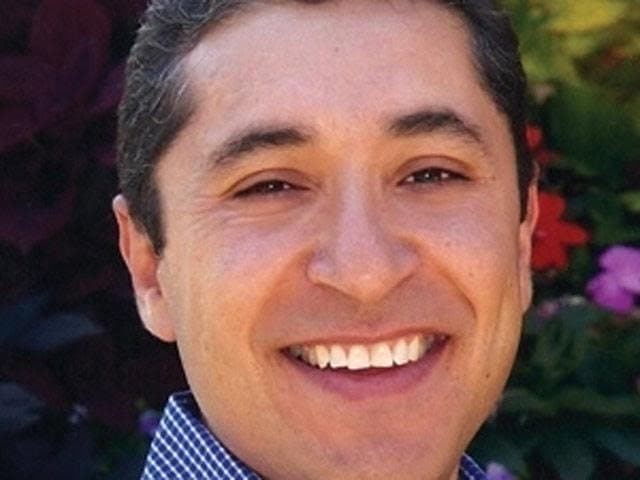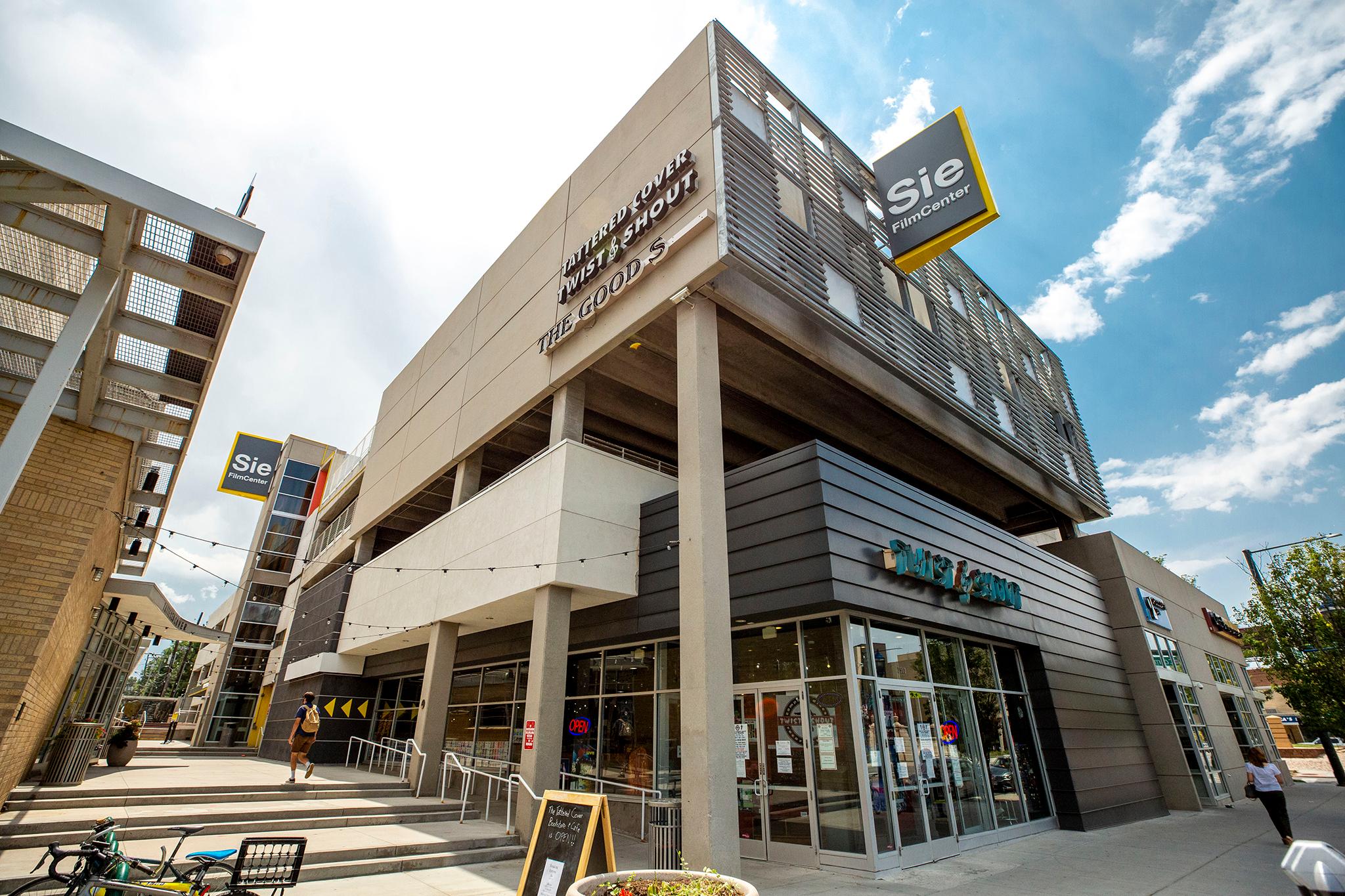James Mejia has had a long career in business and politics. The Denver native founded the Denver Preschool Program, managed the construction of the Denver Justice Center, worked as executive director for the Agency of Human Rights and Community Relations, and managed Denver's Parks and Recreation Department. He also ran for mayor back in 2011, and came pretty close to winning.
Now, he's trying something a bit different.
Last week, Denver Film, the organization behind the Denver Film Festival, Film on the Rocks and the SIE FilmCenter, announced that Mejia would be taking over as the nonprofit's new CEO. Starting on August 10, Mejia will be running Denver Film's outreach, programming and fundraising efforts.
We were curious to learn just what film has to do with business and policy (quite a lot, as it turns out). We chatted with Mejia about the ways in which film offers both an escape and a means to start important conversations; about how Denver Film can remain relevant in a socially distant world; as well as about his favorite films and movie theater snacks.

You have a background in politics and business. What drew you to Denver Film?
This came to my attention in the middle of lock down, when everyone was locked out of their offices and everyone was away from work. And what we were doing at home, we were online watching movies! I felt like film kind of kept people sane during this time. I think film kept the conversation going in a lot of ways. It's how I connect with my kids -- you know, I've got two 16-year-olds and a 10-year-old, and we connect through film. I mean, there's not a Pixar I've missed!
Film, for me, has always been an art form that has connected and has been provocative and has been important for whatever is going on in society -- both a reflection of and a provocation. For me it's an escape. For me, it's entertainment. But it's also really relevant, whether you're talking about Black Lives Matter, or what's going on with regard to the drug economy, or in Parasite last year it was the income disparity in South Korea. It's important in capturing the zeitgeist of the day. And I hope that Denver film will always be seen as filling that role for our community
How might your background in policy inform the way you operate Denver Film?
In government and policy, it's all about relationships. It's all about talking to people, being informed, being able to capture a moment or an initiative or a candidate and doing a lot of convincing about how that candidate or initiative is relevant. And that's what this is, fundraising for Denver Film and bringing on members. As a campaign we've got to be structured and consistent, and we've got to deliver what we say we're going to deliver. And it's all about relationships. So I see a lot of similarities
You know, I've worked in the nonprofit realm before. I started the Denver Preschool Program from scratch and worked for a board of directors. And we brought that program to become the third most subscribed program in the country in just, like, 2.5 to 3 years. I want to see that same kind of focus in relationship-building and relevance of the organization for Denver Film. And there's no reason that it shouldn't be. It is such an important institution. And unfortunately I think it's the best kept secret in Denver and we just need to get the word out. And we need to create partnerships where the organization is accessible to all communities.
You mentioned earlier that films can be a means an escape, but they can also be a way to explore the issues of the day. What role can film play in starting important conversations within the Denver community?
I think sometimes film is a reflection and an affirmation, but sometimes it's a provocation. And I think we can be both, frankly. I think we can be the respite from a movement and kind of a reflection thereof. But I also think we can encourage the conversation that has to happen. And of course, the conversation that's happening now is Black Lives Matter. And Denver Film needs to be a part of that conversation. The question is, what is our role? And I think it is to show disparity and to have a conversation about that disparity, looking at it head on and not deflecting or not shrinking back into a comfort zone, but being able to be one of the organizations that serves as a platform for the conversation.
At Denver Preschool Program, we started something called One book One Denver. And for every preschool child in Denver -- and we had about 70 percent of all preschool kids in Denver enrolled in our program -- they all read the same book. We picked a different book every year. So you have families discussing the implications of what this book means. Why is this book important? What are the morals and values and lessons that it's reflecting on? And it's a community conversation. That was a pretty unique thing for Denver. I'd like Denver Film to do something like that, where we're looking at a film that's relevant and what that film means, and how we bring the community together around a conversation that's important for right now.
Thinking about the moment we're living in, what are going to be some of your priorities in terms of outreach and programming? How are you thinking about Denver Film's relationship with the community, and specifically with patrons from diverse backgrounds?
I'm a Denver native, and there are no neighborhoods in Denver that I'm not comfortable in. I know the entire city, and I know folks across the entire city. And whether that's different immigrant communities or whether that's different ethnic communities, I'm comfortable with reaching out, and have reached out, on any number of projects with regard to community activity. I've already had conversations with the American Indian community on how we might be able to collaborate with Tony Garcia at Su Teatro, who puts on a Latino Indigenous movie series. With folks from the African-American community about how we might be able to promote a conversation. We're already doing the Dragon film series and festival in conjunction with the Dragon Boat Festival. So there's some outreach already happening, but I think it's the tip of the iceberg. I think there's much more that can be done. I've already had real encouraging calls, and I haven't even started. People have reached out and said, "We know you. We know how this is gonna go. We know you're going to be open to community ideas and community, so let's talk about how we can work together." And they all know I'm receptive.
So in terms of priority, it will not be an aside. It will not be an afterthought. It will always be something that we're looking at face-on, and appreciate and celebrate. So I'm excited about that aspect. I'm excited about Denver Film being more integrated in all neighborhoods and diversity in Denver.
The film industry, like many others, is facing a lot of challenges right now because of COVID-19. How might you help to propel Denver Film through all of that?
We're in the same boat as a lot of organizations, and that is, we've got to reinvent. And the reinvention, frankly, may not be that temporary. There may be a permanent aspect to some of the reinvention that we do. I think more and more people are looking at, "Okay, when do we get back to 'normal?'" And a lot of people are saying the way we used to do things may never be the same. That's why our online presence is so very important.
There's some creativity that's coming out of the organization. We're going to start a series of drive-ins at Red Rocks. Everyone's itching for something to do, and what's better than going to a drive-in at Red Rocks? And when you think about it, you got to think to yourself, "Wow, why couldn't that be something we do all the time?" Our Film on the Rocks is a huge hit, but there very well could be some other places that we do drive-ins as a matter of course, rather than as an exception.
The Film Festival this year will largely be virtual, but we're still holding out hope that we may be able to have some things in person, or some hybrid presentation. And then we're looking at ways that we can use that online platform and do some other things besides screening movies, and hopefully promote the community conversation that way. So there's a whole reinvention effort that needs to take place, and we're excited about the possibilities.
Finally, some fun questions: What's your go-to movie snack?
I have the very guilty pleasure of popcorn and ICEEs at the movies. My kids love them. I love them. You know, I try not to do it too much, but I will sit and eat popcorn during the entire movie.
Are you a salt and butter kind of person?
Nope. Just the way they do it. Nothing better than movie popcorn. But no, no butter. Take it right out of there! If kettle corn's an option, I'll take that. But nothing better than movie theater popcorn.
What flavor ICEE do you get?
Cherry. Always.
Do you have a favorite movie, or else, a favorite director?
I would have to break it down into three different categories. With my youngest daughter, we watch every single cartoon that comes out. Everything. And I love that time. It's special time with just her. And we both enjoy that so much So, whether it's going all the way back to Monsters, Inc. and Finding Nemo or some of the more current ones like Big Hero 6, those are family movies that we never miss.
For me personally, I love anything by Pedro Almodóvar, the Spanish director. He's the one that introduced Antonio Banderas and Penélope Cruz to the world. And he's always got an interesting twist in his movies. They're never just a straightforward story. There's always something interesting going on there. And I appreciate the intrigue and the mystery of the way that he directs. So anything by Almodóvar is, to me, outstanding.
And if I had to pick one movie that I could watch any time over and over again, it would be Princess Bride. It has a little bit of everything. It has the love story and the grief and the rebound and kind of everything that I look for in a movie. And it's something I can watch with everyone in the family.













